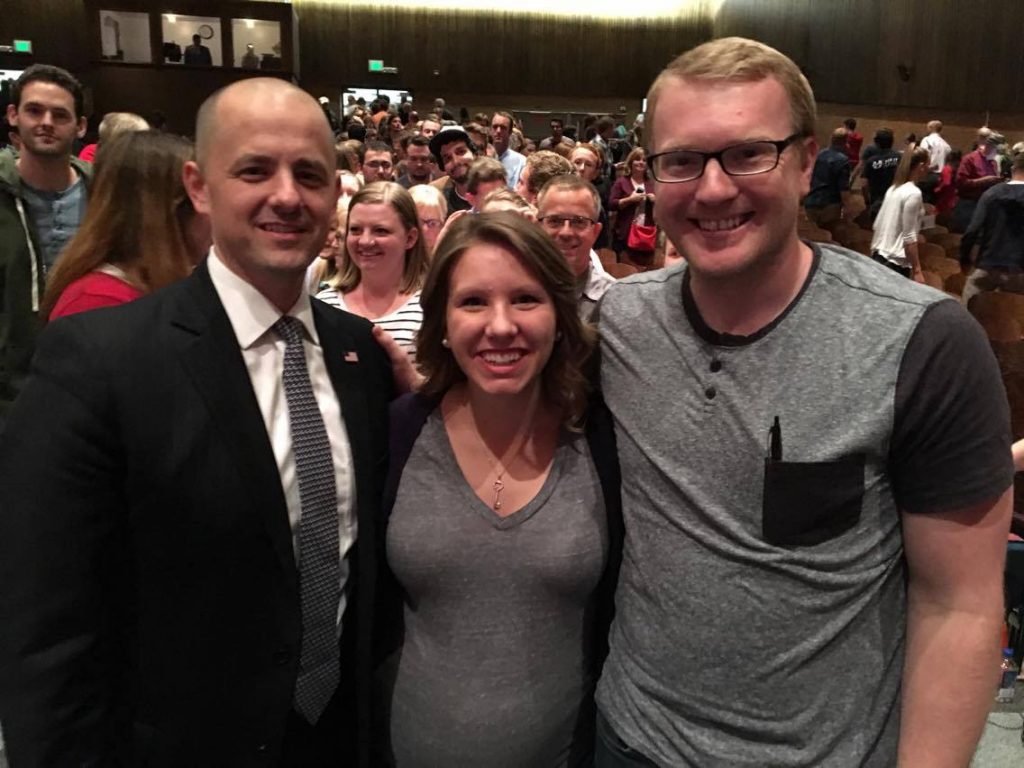
The 2016 presidential election cycle has swayed many Utah voters in favor of supporting a third party candidate.
BYU Spanish professor David Wiseman is one such voter, who said he thinks there is no doubt more people will vote third party than in past elections.
“The choice between Hillary Clinton and Donald Trump seems to have forced some to consider third-party options, because they can’t, for strictly moral reasons in some cases, vote for either candidate,” Wiseman said. “I think it’s caused many to rethink their strategies, and perhaps even their philosophy on voting.”
Wiseman said deciding who to vote for in this election has likewise been a moral issue for him. He said he won’t vote for a candidate he does not morally support.
“I will vote for the candidate who best represents my voice, regardless of the outcome,” Wiseman said. “If I don’t feel comfortable authorizing an individual to speak for me as my representative, I will not vote for that person.”
Mother of three Tammy Lamm, a Utah county resident and registered Republican, said she will be voting for McMullin because it is more important to her to vote for someone she supports rather than voting to win.
“For sure it’s a conscience thing,” Lamm said. “I don’t expect McMullin will win, I know it’s a Hail Mary pass, but I feel like it’s totally a moral thing for me. I’m voting my conscience regardless of the outcome.”
BYU sophomore and human development major Andrea Miller, who is supporting McMullin this election, said she had never considered voting for a third party candidate until about two months before the election.
“I had the mentality that if you vote for a third party (candidate), it kind of is throwing away your vote until I really started thinking about it and realizing that I’d rather vote for someone than vote against someone,” Miller said.

BYU alumnus Greg Hansen said he values voting for a candidate he supports over voting within the two-party system and that for this reason he will be voting for Libertarian presidential candidate Gary Johnson.
“I think that third party is the only way that I have been able to find to vote my conscience and I don’t care necessarily that people say that I’m throwing away my vote,” Hansen said. “I’m not.”
Hansen said voting third party is not unusual for him and that he has even run for local and state offices under third parties in Utah and Nevada. He said his motivation to vote outside the two-party system comes from his belief that it is unfair to impose one of only two sets of values on the American people.
“I don’t think that’s a good thing for the country to only have two political voices, and I don’t think it’s fair for voters to only choose between which major party’s moral views and ethical views and financial views (they will) be subject to for the next four to eight years,” Hansen said.
Lamm said there has been discussion in Utah among people who don’t support either of the major party candidates to vote for the “lesser of two evils” over voting third party. However, she doesn’t support this idea because she feels that doing so is still voting for evil.
“Evil is still evil in my book, and even if it’s the lesser evil, I still don’t feel okay about it,” Lamm said. “I feel like if the country chooses Hillary or Trump, then so be it, but I can sleep at night knowing that I wasn’t a part of that.”
Many voters have found themselves in the “no man’s land” of this election cycle as they cross traditional party affiliation boundaries and land their presidential votes somewhere in between due to their dissatisfaction with this election’s two major party candidates, Donald Trump and Hillary Clinton.
The following Daily Universe podcast offers perspectives from the BYU community on this principle and voting third party this election.




